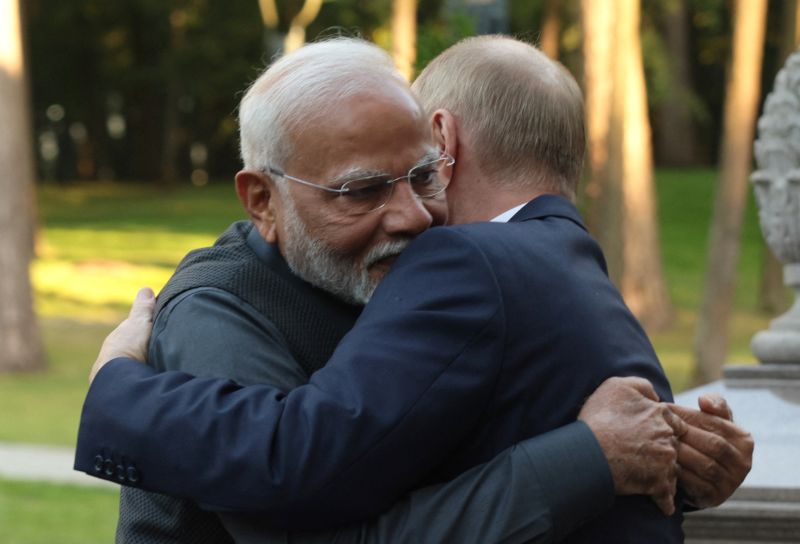Weeks after Kyiv criticized Indian Prime Minister Narendra Modi over his friendly gesture toward Russian President Vladimir Putin in Moscow, it has been announced that the Indian leader will be making a state visit to Ukraine.
This planned trip signals a shift from the traditional course and presents an opportunity for India to display neutrality and balance in its relations with both Russia and Ukraine. The embrace between Modi and Putin during the BRICS (Brazil, Russia, India, China, and South Africa) summit had thrown a wrench into Ukraine’s relations with India, and this upcoming visit serves as a diplomatic response to the geopolitical tension.
In recent years, India has built a strong strategic partnership with Russia, which caused unease in Kyiv, especially considering the ongoing conflict in Eastern Ukraine with Russian-backed separatists. It led Ukraine’s foreign ministry to publicly criticize Modi for hugging Putin, describing it as a lack of sensitivity to Ukraine’s sovereignty and territorial integrity. The criticised hug occurred during the Indian Prime Minister’s visit to Moscow late last year, where he and Putin publicly expressed their mutual affection for each other.
India’s move to send Modi to Kyiv shortly after criticism indicates its intention to maintain balanced diplomacy. This visit portrays India’s strategy of mature global leadership, not succumbing to the pressure of favouring one partner over another, but instead maintaining a balanced and fair approach to all.
The Indian Prime Minister’s agenda for the visit to Ukraine would likely include discussions on expanding bilateral trade, improving economic ties, and addressing the situation in Eastern Ukraine. He would likely also provide an explanation of India’s stance on Russia, to allay any concerns the Ukrainian government may have.
During the visit, both sides would also examine opportunities for closer cooperation in sectors such as energy, defense, and technology. Given India’s burgeoning IT sector, cooperation in the field of technology could be particularly on the cards.
The Indian Prime Minister’s impending trip to Ukraine also provides an unparalleled opportunity for both nations to repair their relationship post the Putin-hug incident. This sends a strong signal to other countries that India, under Modi’s leadership, can navigate through diplomatic challenges without taking sides.
India’s continuous effort to maintain and strengthen its ties with Russia, while simultaneously attempting to restore and expand its relations with Ukraine, depicts its capability for strategic diplomacy. Ukraine and India have a long history of diplomatic relations dating back to the Soviet era, and this visit could pave the way for a future built on trust, respect and mutual benefit.
Overall, the forthcoming visit by the Indian Prime Minister to Ukraine is a testament to India’s independent foreign policy. It stands as a direct response to those who questioned Modi’s diplomacy following his embrace with Putin. It showcases that India, under Modi’s leadership, is capable of making balanced and independent decisions, aimed at upholding trust, respect, and ensuring mutual benefits between nations.




